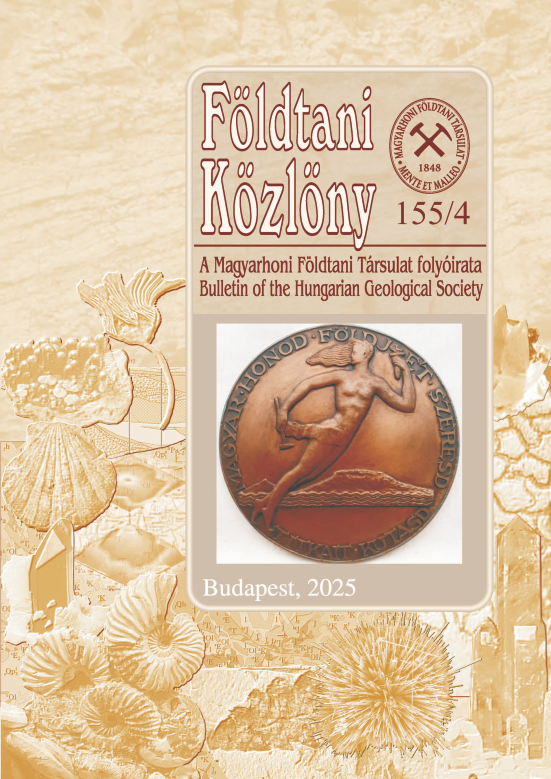A prognosztikus szénhidrogénvagyon becslési bizonytalanságának és geológiai kockázatának elemzése
Abstract
Prognostic petroleum resources are unexplored quantities of potential subsurface hydrocarbon accumulations. Play assessment is considered to be the up-to-date industry standard methodology of petroleum prognosis. It involves analyses of source rock development and maturation, hydrocarbon migration, development of recoverable reservoirs, efficient sealing and the formulation of traps. The analyses, with the consideration of several modifying factors, may result in the estimation of future recoverable quantities and the associated geological risks.
According to industrial guidelines and company practices the quantities are probability variables with log-normal distribution. Using Monte-Carlo simulation the P90, P50 and P10 volumes can be obtained while deterministic calculations give the Low, Best and High Estimates (LE, BE, HE). Guidelines suggest it is best to deal with the range of the uncertainty as it is defined by the P90/P10 or alternatively by the LE/HE values. Without challenging the viability of the approach the study proposes a consideration the measure of the uncertainty instead, numerically defined by the standard deviation relative to the mathematical Mean. Geological risk is the complement of geological probability that provides the opportunity for a working petroleum system to be assessed in a given play segment. For the geological probability assessment of prognostic resources the study suggests implementing the Common Risk Segment (CRS) mapping methodology; this is commonly used by oil companies for the geological evaluation of the remaining hydrocarbon potentials in their study areas. For prognostic resources however the CRS probabilities may be multiplied by the chances of success of finding at least one drillable prospect. The total Probability of Success (PoS) then gives informations about the chance of future discoveries while the product of the Mean prognostic volume and the PoS gives the Mean Success Volume (MSV).
The prognostic petroleum resource assessment is the primary interest of government agencies which are in charge of exploration concession strategies and the supplying of inputs to long-term energy policies. The value of future
concession areas can be determined based on the Mean of the prognostic recoverable volumes, the relative standard deviation describing the uncertainty and the Probability of (future exploration) Success. The prognostic MSV serves as
the basis for the long-term forecasting of domestic production while the relative standard deviation makes possible for the risk analysis of energy policy scenarios.











